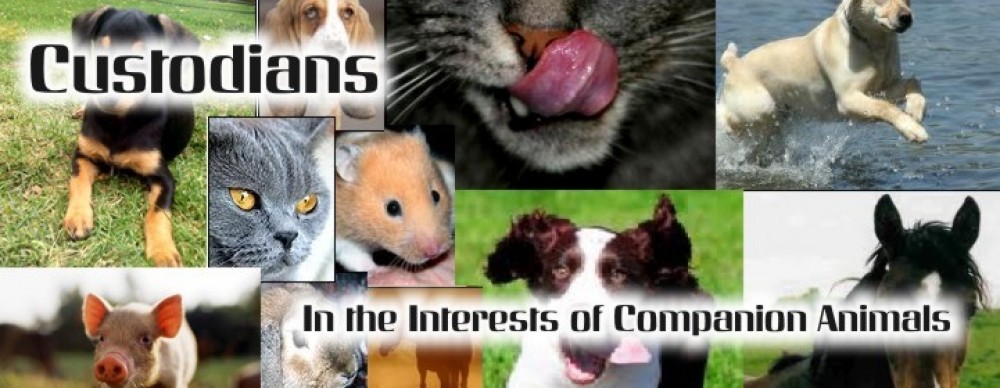If you have been watching the news and if you receive animal welfare newsletters, you will be aware that the crisis facing domestic animals in South Africa is deepening.
There are some people who believe that all we need is more people in welfare and more money to assist them. I am not one of them. I think the sheer size of the problem takes it beyond a mere capacity increase. We must think more carefully about the nature of the problem and its root causes before we assume that throwing money and people at it will provide sustainable solutions.
The fact is, shelters are more full than they have ever been. The volume of emails with unwanted animals looking for homes has increased to staggering proportions and welfare workers are struggling to find foster homes.
There has been an increase in operational integration and this has yielded some benefit; but the downside is that there are more organisations using the same mediums to promote their animals and initiatives and the public are inundated with appeals, from foster homes to funding. If saturation point has not been reached, it is not far off, which means that the growth of this sector is unlikely given that the growth of any sector in an economy is dependent upon resourcing.
It also means that operational integration has limited benefit.
We must look to the strategic arena if we are to find sustainable solutions, where the scope is large-scale, encompassing aggregate perspectives and long-term scenarios. It will not help to rescue, rehabilitate and rehome if we are not focusing on the root causes that lead to the necessity for the process. The job of animal welfare is not only to fix the problem once it has occurred; this is reactive and does nothing to stop the cycle – it is not prevention, it is attempted cure, and a band-aid at best.
What is necessary is to focus attention and resources on addressing the root causes – prevent the problem occurring in the first place – and this is a far more difficult job, requiring careful understanding and enormous patience. It is also a job that requires the collective will, which can only be harnessed by pooling the resources of the operational organisations in such a manner that synergies are gained that have long-term effects. Strategy does not happen on its own, and the domestic animal welfare sector does not have a strategy. What it has is a myriad of organisations with short-term tactics without a guiding hand and vision. This is not to say that these organisations do not do an astounding job given their challenges; but short-term tactics do not result in sustainable solutions.
Why regulation of the domestic animal welfare sector is necessary is evident for many reasons.
There are still ‘reputable’ organisations that often do not conduct home checks. I have several reports from people adopting from Puppy Haven and Wet Nose to mention just two that seem not to recognise that only amateurs don’t do home checks. In many cases, foster homes are taken on without home checks, and puppy sterilisations are not followed up. Often, dogs are transferred from one shelter to another and in many cases health checks are not conducted and conditions that would necessitate quarantine are not recognised, creating risks for all.
I have had reports from all over the country of such occurrences. It is up to you, the members and volunteers, to highlight these events so that domestic animal welfare can get its house in order. There are two possible scenarios here – we will either get regulated by government people and/or the NSPCA, or we can do it ourselves and become a force in creating and policing legislation.
It seems animal welfare organisations are a law unto themselves and this is an unsatisfactory condition in any practice, even less so when the lives of living, sentient beings are at stake. There is a need to standardise and benchmark practices and procedures. This is best done by creating an umbrella body to which welfare organisations belong and agree to comply with a set of policies, procedures and standards that are developed by all collaboratively. These can eventually form the framework for legislation of the animal welfare sector.
Regulation will also provide the public with peace of mind that they are dealing with an accredited, trustworthy organisation.
These are not huge difficult steps. Much of the integration is already informally in place, and a large amount of the regulation work is complete and merely needs a rubber stamp. What is necessary is formalisation and agreement.
If you are an individual who would like to be part of this process, please register on the right by clicking on Member Registration’ under ‘Links’.
If you head up an organisation that subscribes to the Custodian Rule, complies with the Custodian rescue, rehabilitate and rehome process, and you agree with the Custodian Alliance objectives and structure and the Interim Constitution, send me an email including the name of your organisation and your website address, to animalcustodians@gmail.com and I will ask the members to consider your application.
Custodian

Was told by Fora that they dont bother with home checks for cats at their opening last year.
Its a must.
Pets CT sent me a dog without vaccination records and turned out he had distemper. I kept asking for the records to date even though the dog has passed on I have not recieved them.
You have my support!